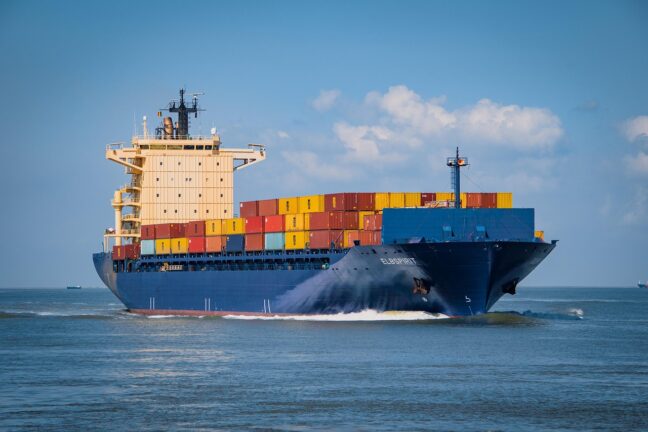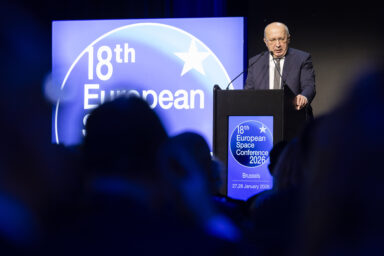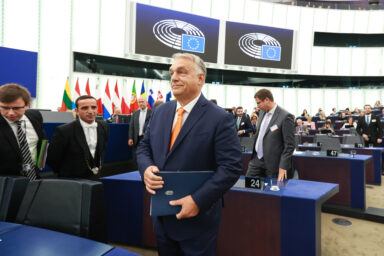The European Parliament and the Council of the EU agreed on 18 June to streamline the bloc’s Carbon Border Adjustment Mechanism, or CBAM. The agreed reform exempts small-scale importers from compliance obligations while maintaining the policy’s core climate goals.
The reform, part of the Omnibus I regulatory simplification package proposed in February 2025, aims to renoncile two contradictory requirements. It seeks to reduce administrative costs for businesses while not diluting the CBAM’s environmental targets. Under the provisional deal between the Council and Parliament, importers of CBAM-covered goods—including steel, aluminium, cement, and fertilisers—will face no reporting requirements if they bring in fewer than 50 tonnes annually.
The agreement is to replace a narrower exemption for negligible-value shipments. The move is projected to spare 90 per cent of importers, predominantly SMEs and individuals, from bureaucratic hurdles. Despite the carve-out, 99 per cent of embedded CO₂ emissions from targeted sectors remain subject to CBAM rules. Safeguards to prevent abuse, such as penalties for artificially splitting shipments to exploit the threshold, are in place.
Institutional welcome
Members of both of the co-legislating bodies involved, the European Parlament and the Council of the European Union, welcomed the agreement with a palpable sense of relief. After the deal, the parliamentary rapporteur Antonio Decaro (S&D/ IT) said: “The CBAM is designed to prevent carbon leakage and protect Europe’s cement, iron, steel, aluminium, fertiliser, electricity, and hydrogen industries. We have answered calls from companies to simplify and streamline the process and exempted 90 per cent of importers of CBAM goods to facilitate competitiveness and growth for our businesses.“
The Italian member strived to make it clear that the changes preserve the CBAM’s original purpose, environmental protection. „As the CBAM will still cover 99 per cent of total CO2 emissions, we have maintained the EU’s environmental ambitions and remain fully committed to a just transition and to achieve climate neutrality by 2050,” he said.
You might be interested
Today’s provisional agreement with the Parliament is yet another step towards reducing administrative burden for our companies. Adam Szłapka, Minister for the European Union of Poland
Adam Szłapka, Minister for the European Union of Poland, spoke in a similar tone. “Simplification is a top priority for the Polish presidency. Today’s provisional agreement with the Parliament is yet another step towards reducing administrative burden for our companies and further boosting EU competitiveness,“ he stressed.
Enhanced anti-circumvention rules
The agreement simplifies procedures for larger importers. It eases authorisation processes, refines emissions calculation methods, and clarifies financial liabilities during the import year. Importers can continue trading CBAM goods while awaiting registration starting in 2026, avoiding supply-chain disruptions. The deal also strengthens anti-circumvention measures, including stricter rules for customs representatives. It also recognises carbon prices paid in non-EU producing countries.
The reforms align with broader EU efforts to slash regulatory complexity. The European Council called for the simplification in October 2024 to address competitiveness concerns featuring prominently in reports by Enrico Letta and Mario Draghi. A November 2024 “Budapest declaration” urged a “simplification revolution” to reduce burdens on businesses, particularly SMEs. The Commission has since pursued the directive through its twin omnibus packages targeting sustainability and investment rules.
Lighter bureaucracy
The CBAM, designed to align carbon costs for imports with those faced by EU producers under the Emissions Trading System (ETS), will retain its focus on curbing carbon leakage. The Commission plans to assess by early 2026 whether to extend the mechanism to other ETS sectors and how to support exporters vulnerable to competitive disadvantages.
The provisional text, pending formal adoption by September 2025, includes provisions for funding the central CBAM platform selling emission certificates. It will enter force three days after publication in the EU Official Journal, marking a calibrated shift toward lighter bureaucracy for smaller actors while preserving the policy’s environmental integrity.











